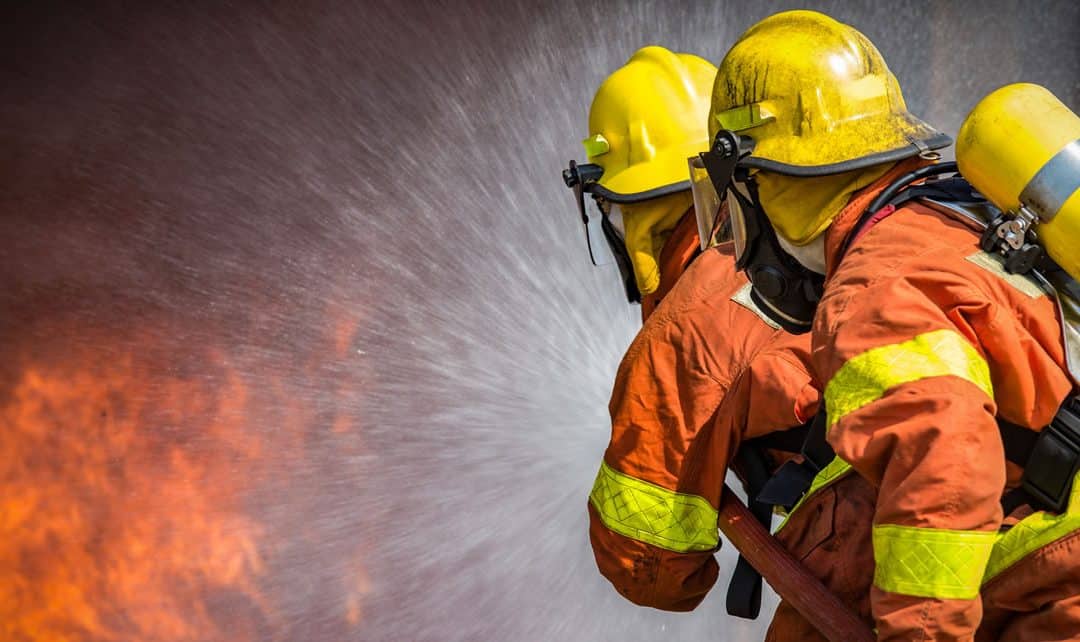When showing a listing or working with a client, I field any number of questions: some are about the features in an individual unit and others are more unusual. I’ve been asked about everything from strange smells in the area to corrupt property managers, but I’ve never been asked “can a condo burn down?” However, I thought it might be interesting to explore that question.
The Grenfell Tower fire is undoubtedly the most publicised residential building fire in recent years and had many wondering about how Toronto condos would fare in a similar situation; the fire broke out in a fourth floor apartment on June 14, 2017 and by the time the fire was out, 72 people were dead.
The fire was quickly reported and firefighters responded in just five minutes. Unfortunately, it would become clear later on that the fire had quickly spread to the building’s cladding before responders could even enter. Once there, it raced up the side of the building.
The main culprit in the fire was a combustible cladding known as polyethylene polymer, which did nothing to contain the fire or heat, and actually helped it spread. What followed was a series of breakdowns: an underpowered water system, a smoke extraction system that wasn’t working and fire doors that weren’t up to code.
It was the building’s policy for residents to remain in place in the event of a fire – a policy that’s also recommended by Toronto Fire District Chief Peter Derrington here, should residents feel they cannot safely evacuate a building. That lead many residents to remain in their units, only to succumb to smoke inhalation.
Condo units are designed to function as containers in the event of a fire, but Grenfell Tower woefully failed at that task.
Here in Canada, you don’t hear about condos burning to the ground or such staggering numbers of casualties. There are several factors to explain this, but one of the major reasons why condos don’t burn down, is that the provinces have strict fire codes, such as Ontario’s The Fire Protection and Prevention Act of 1997.
To outline the act in full in this article would likely put most of you to sleep, but to sum it up — the act covers everything from building requirements and fire safety to proper procedures for retrofitting a building. The guidelines are ironclad and the penalties for ignoring them are steep.
Building materials are the first line of defense when preventing a fire from spreading, and the combination of concrete and fire retardant cladding and insulations has proved invaluable in preventing devastating fires. Though most think of cladding as a weather proofing feature, it’s as much a fire prevention material.
Toronto is no stranger to fires; most will likely remember the six-alarm blaze at 650 Parliament St. August 2018, which garnered significant attention from the media. The fire displaced 1,500 residents, but despite its severity, there were no casualties. The reason for this? Plenty of credit goes to first responders, but the apartment ultimately functioned as intended and contained the fire.
When you compare the conditions of the Grenfell Tower fire to regulations in Canada, the difference is clear; buildings over four storeys in Canada must have cladding that meets a one- to two-hour burn minimum, meaning that it could resist burning for that period of time. That’s long enough to successfully evacuate a building.
Most modern buildings have multiple sprinklers in every unit, and even older properties have sprinklers in hallways. Water pressure regulations ensure that those sprinklers are sufficiently powered. Regulators have even targeted combustible furniture in lounges and lobbies, further reducing the odds of a fire spreading.
Even Daenerys’ fire breathing dragons would struggle to melt a Canadian condo.
Condo residents depend on the building regulations and property management for fire safety, but there are things they can do to protect themselves – checking CO and smoke alarms in their units, regularly checking fire extinguishers and avoiding furniture that’s made of combustible materials.
Robert Van Rhijn is a Toronto-based Realtor and broker of record at Slate Realty, in the downtown Toronto area. He founded Strata.ca in 2018. It’s a Toronto-based condo website with a focus on easy-to-understand data analytics for consumers.













